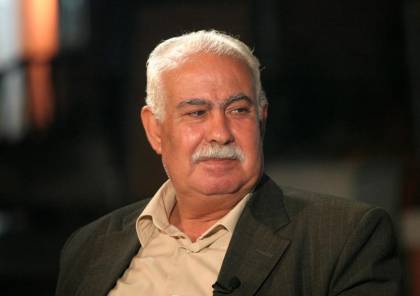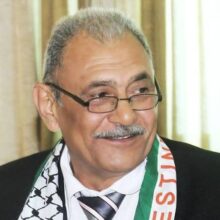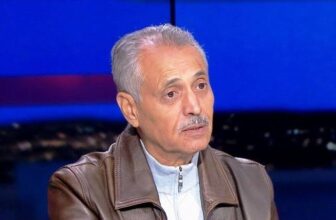Conditions for Gazans defy imagination
Al-Khamisa News Network - Gaza

Author: Talal Awqel
Cutting off water, food and electricity from those whom the “head of the extermination government,” Benjamin Netanyahu, called “savage humans,” and assassinating them with all kinds of weapons, or by starving them, depriving them of medicine, poisoning the environment, destroying homes and tents, and scraping away the soil, was not born out of the moment referred to in recent UN reports.
From the first weeks of the war, the Israeli decision was declared and clear, and it was put into rapid effect even before the Rafah land crossing was occupied and closed and aid stopped entering.
Before the crossing was occupied and closed, displaced people were searching for potable and non‑potable water, until the markets ran out of the plastic jerrycans they used to carry water from distant areas.
And before the crossing was occupied and closed, foodstuffs, canned goods, vegetables, gas and even firewood were beginning to run out of markets — and naturally poultry, meat, and live and frozen fish.
Before the occupation of the Rafah crossing, most types of medicines had already run out in pharmacies, whose shelves had emptied, including basic painkillers and drugs for chronic diseases.
The war of starvation, and the use of starvation as a deadly weapon, began many months before the tightening of the siege on the Strip, and it escalated until it became a widespread phenomenon whose victims increased day by day, until the United Nations, very late, confirmed that the Israeli state is committing a systematic crime of starvation aimed at killing every means of life in the Strip — including fetuses in their mothers’ wombs and infants — as if the goal were to kill Palestinian progeny and annihilate coming generations.
No Palestinian, whatever their age, role or job, has the right to any of the means of life in a world that gives animals every form and cause of care and protection from extinction.
In Western countries that theoretically raise placards of human rights and guarantees of freedoms, one rarely finds a household without a dog, cat or other animal that receives far more respect, food and care than hundreds of millions of people on the face of the earth.
In Western countries, too, animal caretakers may show concern for their animals as a priority more than is shown in other countries where killing, destruction and violations of the simplest human rights occur.
Despite these well‑known facts, public opinion in Western countries would not have been able to continue life as normal in the face of the atrocities coming from the Strip. Meanwhile, Arab public opinion fails to show the minimum sympathy and reaction.
In Gaza today, people are gripped by intense fear over the barbaric military operation that targets some 800,000 people and has left them no means of escape by the army of force.
They left their tents and temporary shelters when the army of crime pushed them southwards to Rafah, Khan Younis and the central area, and they returned to what remained of their destroyed homes, or pitched their tents around and atop the rubble.
These people are now threatened with another displacement; after repeated displacement they do not know their next destination or how to manage their affairs. Rafah is fully occupied and completely emptied of its residents, and Khan Younis is the same, except for a narrow strip to the west along the sea.
Deir al‑Balah is overflowing with tents and has no capacity to absorb more new displaced people, in addition to Nuseirat, Al‑Maghazi and Al‑Bureij, which are also being targeted by the occupation army’s plan, as is Gaza City.
A journey from Gaza City toward the center or south, if pressure is placed to evacuate residents, means walking between 25 and 30 km on foot; those with money will pay about 10,000 shekels for the trip.
What will the displaced carry with them if invasion forces force them to move again? The tents are worn out and many no longer have them. Will they carry mattresses, blankets and cookware, or the remnants of their worn clothes or whatever foodstuffs they still have?
On many occasions one was astonished to find families in areas that were completely taken over and whose residents were forced to flee, such as Beit Hanoun, Beit Lahia, Jabalia, Shujaiya, Zeitoun and the al‑Daraj neighborhood.
Those who remained in those areas were subjected to savage bombing and destruction whether in what remained of their ruined homes, in a school, or a shelter. Even today, where the occupation army has overrun Shujaiya, al‑Daraj and Zeitoun, families remain resigned to fate after losing the ability to endure repeated displacement tragedies.
The situation of people in threatened Gaza City is exactly like that of those who stayed in areas occupied by the army to the east of the city. Just as those who go to aid trucks either return with a bag of flour (25 kg) or return in a bag, since death pursues a person wherever they are and whatever they do.
If that is the case, then most residents of Gaza City no longer have any choice but to stay where they are: death pursues them everywhere, so why put themselves through the agony of displacing themselves into the unknown?
In response to the massacre of journalists and civil defence personnel at Nasser Hospital on Monday, the occupation army’s spokesman says his army did not target Reuters and Associated Press journalists, which means that everyone is a target — whether doctor, medic, journalist or ordinary civilian — unless they belong to an international organization that the occupying state takes into account, even though it has killed international relief staff.



